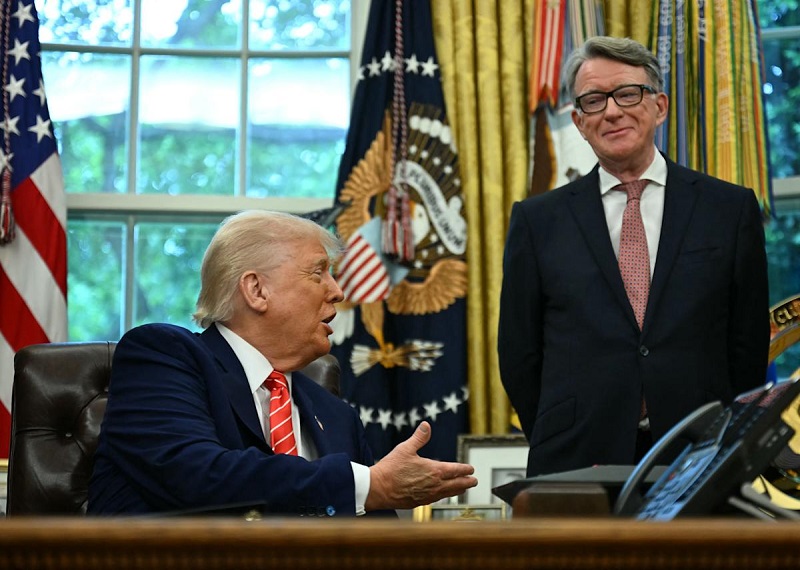
Fri, May 9, 2025
With two months remaining in a 90-day "reciprocal" tariff pause, President Trump claimed his first breakthrough in a bilateral deal with the UK.
The nation's strongest ally is now our first realigned trading partner, and the biggest winner that isn't a head of state is a major US industrial leader: Boeing.
As part of the US-UK deal outlined Thursday, Commerce Secretary Howard Lutnick said the UK had committed to buying $10 billion worth of Boeing planes; reporting from Bloomberg later indicated that IAG, which owns British Airways, is set to order up to 30 Boeing jets.
In turn, the US agreed to allow Rolls-Royce jet engines and other parts to be imported without levies, in addition to concessions on auto imports, steel, and aluminum, among other provisions.
Boeing stock rose 3.3% on the news to close at its highest level since March 28, 2024.
Compared to where trade agreements stood before Trump began his second term in office, tariffs imposed on British imports are now bigger, even under the terms of the new deal. Higher costs are higher costs, even if both countries' leaders say they are pleased with the arrangement.
But pointing out that things are more expensive invites the aphorism that perfect is the enemy of good. The calculus on Wall Street, where anxious investors have been looking for good news on trade, is that things were worse before. Now, they are better.
That may be the high-tariff reality of living with lowered expectations. There are real risks being priced into a variety of stocks. And any sign of relief, of some improvement in the outlook — like IAG buying Boeing planes — ends up becoming a win.
But even as the market applauded Trump and Prime Minister Keir Starmer's pact, some observers offered a dose of wariness.
"The deal did not touch more contentious issues, such as opening healthcare markets to US providers, or the UK's digital services tax," said Michael Pearce, deputy chief economist at Oxford Economics, in a note on Thursday. "That fits with the broader picture that deep and comprehensive trade deals are difficult to achieve."
These announcements will "nibble away" at the effective tariff rate, Pearce said. The details will be key to determining whether such commitments, like the one for Boeing, will be economically significant.